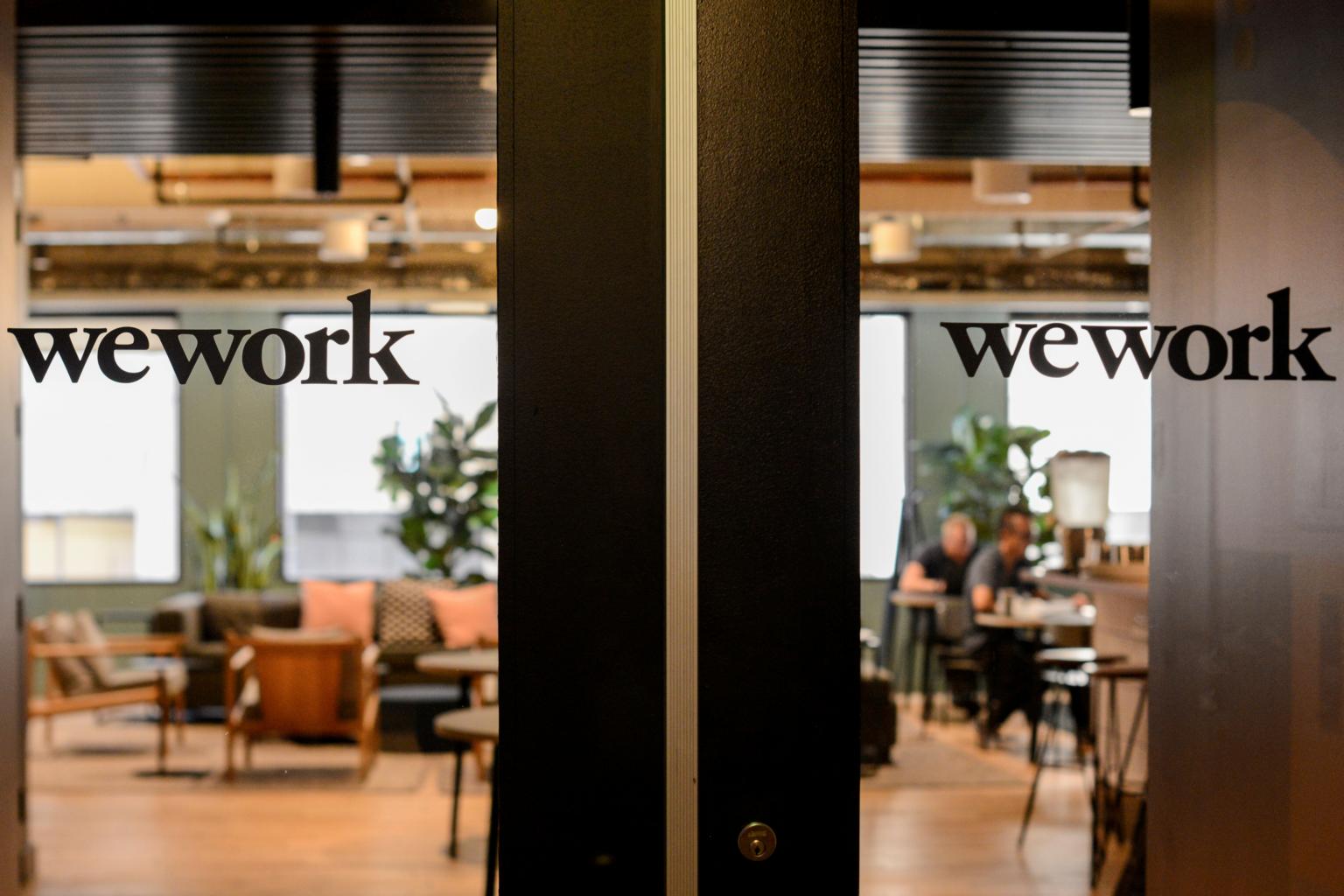Co-working here to stay despite WeWork concerns: Jefferies, DBS
Sign up now: Get ST's newsletters delivered to your inbox

Poor sentiment on office sharing giant WeWork could further damp demand for co-working spaces amid slowing gross domestic product growth.
PHOTO: REUTERS
SINGAPORE - The co-working business is here to stay despite recent concerns about office sharing giant WeWork, according to separate reports from Jefferies and DBS.
A Credit Suisse report earlier this week said poor sentiment on the company could further damp demand for co-working spaces amid slowing gross domestic product growth, hurting office Reits in Singapore.
WeWork's recent developments might speed up consolidation among operators, but Jefferies analyst Krishna Guha believes co-working is here to stay as traditional tenants embrace a "core plus flexible" concept and smaller firms seek to lower fixed costs and ease business expansion.
More work is done by cross-functional project teams who move to different countries once a project ends, he added.
DBS Equity Research analysts Rachel Tan and Derek Tan said demand from entrepreneurs, freelancers and start-ups will support the industry.
An important consideration is in the operator, and those backed by landlords or developers such as Distrii by City Developments, Justco by Frasers Property and The Work Project by CapitaLand are more viable options, added DBS.
Although Singapore's overall co-working space has tripled since 2015, its total net lettable area (NLA) of 3.7 million square feet (sq ft) make up only about 5 per cent of island-wide office space.
DBS said S-Reits (Singapore real estate investment trusts) have a 2 per cent or less portfolio NLA exposure to WeWork except for CapitaLand Commercial Trust (CCT) and Frasers Commercial Trust (FCOT).
CCT has the largest exposure to WeWork at about 4 per cent of total NLA, mainly due to a seven-year lease it signed with WeWork for 21 Collyer Quay that starts from Q2 2021.
"In the worse case scenario where WeWork fails to undertake the lease, there is still time for CCT to find alternative tenants as the building sits on a prime location in the central business district," said DBS.
There is also a planned asset enhancement initiative to refurbish the building, DBS added.
Similarly, Suntec Reit had signed a 10-year lease with WeWork in 2018 for 36,500 sq ft of space, which is fully occupied.
The sign-ons for both Reits are below market rate, but have extended fit-out periods and no break clause, noted Mr Guha.
Including WeWork's lease in its Perth commercial building, FCOT has the second-largest exposure with 3 per cent of its NLA leased to WeWork.
The rest of S-Reits' exposure to WeWork is estimated to be less than 2 per cent, such as CapitaLand Mall Trust with 1 per cent of NLA.
Singapore now has the second highest number of co-working centres in Asia behind Tokyo. Since 2015, DBS estimates that 30 to 90 per cent of net demand for Singapore office space has been from co-working operators, and said that this may slow down in the coming years.
Reits will be able to manage the slowdown as expiring rents for the next couple of years are below current spot by more than 10 percentage points, said Jefferies' Mr Guha.
So, unless there is a drop in demand and job losses increase sharply, landlords may have to lower reversions and focus on tenant retention, he added. "Stable unemployment rate can mitigate negative effects in co-working and lower bond yields can provide valuation support."
"In view of the slowing economy and a mini hike in supply of 1.7 million sq ft in 2020-2021, we believe that there is rising risk of slower than anticipated take-up rates, and potential stagnating of prime office rents, which stands at $11.30 per square foot as at Q2 2019, up 26 per cent from the lows in Q2 2017," said DBS.
CCT has been the most receptive to flexible workspace operators, with about a 10 per cent exposure compared with less than 5 per cent for other S-Reits.


